Contact Us
Why Canned Pumps Are Essential for Efficient Fluid Transfer in Industries
In the realm of fluid transfer technology, the efficiency and reliability of pumping systems are paramount, particularly in industrial applications. Canned pumps have emerged as a critical component in this sector, providing unique advantages that enhance operational performance. According to Dr. Emily Johnson, a leading expert in pump technology, “Canned pumps represent the future of fluid transfer, combining efficiency with low maintenance requirements to meet the demands of modern industries.” This insight highlights the significance of canned pumps in ensuring seamless fluid movement, minimizing downtime, and maximizing productivity.

Furthermore, the design of canned pumps eliminates common issues associated with traditional pumping systems, such as leakage and mechanical seal failures. Their enclosed structure not only safeguards the fluid being transferred but also protects the surrounding environment, making them an ideal choice for industries dealing with hazardous materials. As industries face increasing pressures to adopt sustainable practices, the advantages of canned pumps become even more pronounced. By embracing this technology, companies can achieve both operational excellence and environmental responsibility, ultimately leading to a more efficient and sustainable future in fluid transfer.
The Role of Canned Pumps in Achieving Zero Leakage in Fluid Transfer Applications
Canned pumps have become indispensable in industries seeking reliable fluid transfer solutions, particularly in applications where zero leakage is paramount. The unique design of canned pumps incorporates a motor and pump in a sealed unit, effectively eliminating the risk of fluid leaking into the atmosphere. This is especially crucial when handling hazardous materials, as even minor leaks can lead to significant safety concerns and environmental impact. Moreover, the ability of canned pumps to operate under high pressure enhances operational efficiency while mitigating the challenges associated with vaporization, particularly in applications such as ammonia pumping.
Tips for selecting canned pumps include considering the specific fluid characteristics and required system pressures. When working with high-viscosity fluids, such as polymers, ensure that the pump's structural design can handle the application demands without compromising performance. Additionally, keep your eyes on market trends, as advancements in technology continue to bring forth more efficient and reliable canned motor pumps tailored for diverse industrial applications. As these pumps gain popularity, understanding their advantages can help streamline processes and reduce operational risks.
Key Advantages of Canned Pumps for Cost-Effective Industrial Fluid Management
Canned pumps have emerged as a vital component in industrial fluid management due to their numerous advantages. One of the key benefits is their ability to operate without the risk of leakage. This sealed design ensures that hazardous fluids remain contained, significantly reducing environmental risks and protecting operators from exposure. By preventing spills and leaks, industries can achieve compliance with strict environmental regulations, which ultimately contributes to cost savings by avoiding potential fines and cleanup efforts.
Moreover, canned pumps are known for their energy efficiency. Unlike traditional pumps, which may waste energy through mechanical seals and other components, canned pumps streamline the process by integrating the motor into the pump casing. This design minimizes energy loss and maximizes performance, allowing for lower operational costs. Additionally, their durability and low maintenance requirements further enhance their cost-effectiveness, making them an ideal choice for industries looking to optimize their fluid management systems while maintaining high standards of safety and efficiency.
Advantages of Canned Pumps in Fluid Transfer
Understanding the Impact of Canned Pumps on Energy Efficiency in Fluid Handling Systems
Canned pumps play a crucial role in enhancing energy efficiency within fluid handling systems across various industries. Unlike traditional pumps, canned pumps feature a hermetically sealed design, which minimizes the risk of leakage and evaporation. This design allows for a more consistent and reliable fluid transfer process, reducing energy consumption by maintaining optimal flow rates and minimizing downtime due to maintenance or system failures.
Moreover, the energy efficiency of canned pumps is significantly influenced by their operational characteristics. Their compact size and advanced motor design contribute to less energy loss during operation, leading to lower overall energy costs. This efficiency not only helps industries meet regulatory standards but also supports sustainability initiatives aimed at reducing their carbon footprint. By adopting canned pumps, organizations can achieve superior performance in fluid handling systems while promoting energy conservation and environmental responsibility.
Case Studies: Enhanced Operational Safety with Canned Pumps in Chemical Industries
 Canned pumps play a crucial role in enhancing operational safety within the chemical industry. Their sealed design effectively contains hazardous fluids, minimizing the risk of leaks and spills that could jeopardize worker safety and environmental integrity. This technology has been increasingly adopted by companies prioritizing safety, particularly in regions like Shanghai, where recent initiatives have been taken to boost the safety training of frontline workers in hazardous chemical enterprises. By ensuring that personnel are well-equipped with the knowledge and skills to handle emergencies, companies can further leverage the advantages provided by canned pumps.
Canned pumps play a crucial role in enhancing operational safety within the chemical industry. Their sealed design effectively contains hazardous fluids, minimizing the risk of leaks and spills that could jeopardize worker safety and environmental integrity. This technology has been increasingly adopted by companies prioritizing safety, particularly in regions like Shanghai, where recent initiatives have been taken to boost the safety training of frontline workers in hazardous chemical enterprises. By ensuring that personnel are well-equipped with the knowledge and skills to handle emergencies, companies can further leverage the advantages provided by canned pumps.
Real-world case studies highlight the success of canned pumps in reducing incidents in chemical processing plants. For instance, facilities utilizing these pumps have reported a significant drop in accidents related to fluid leaks, leading to safer work environments. This proactive approach not only protects employees but also aligns with national safety mandates aimed at fostering a culture of safety awareness and preparedness in high-risk industries. As organizations continue to invest in the training and technology that prioritize safety, the role of canned pumps becomes increasingly vital in establishing a resilient operational framework.
Comparative Analysis: Canned Pumps vs. Traditional Pump Systems in Industrial Applications
Canned pumps offer a distinct advantage over traditional pump systems in various industrial applications, primarily due to their unique design that enhances reliability and safety. Unlike conventional pumps, canned pumps feature a non-contact, enclosed impeller, which substantially reduces the risk of leaks. This is crucial in industries that handle hazardous or corrosive fluids, as it minimizes the potential for environmental contamination and protects worker safety. Additionally, the absence of shaft seals in canned pumps eliminates a common failure point, resulting in lower maintenance requirements and reduced downtime.
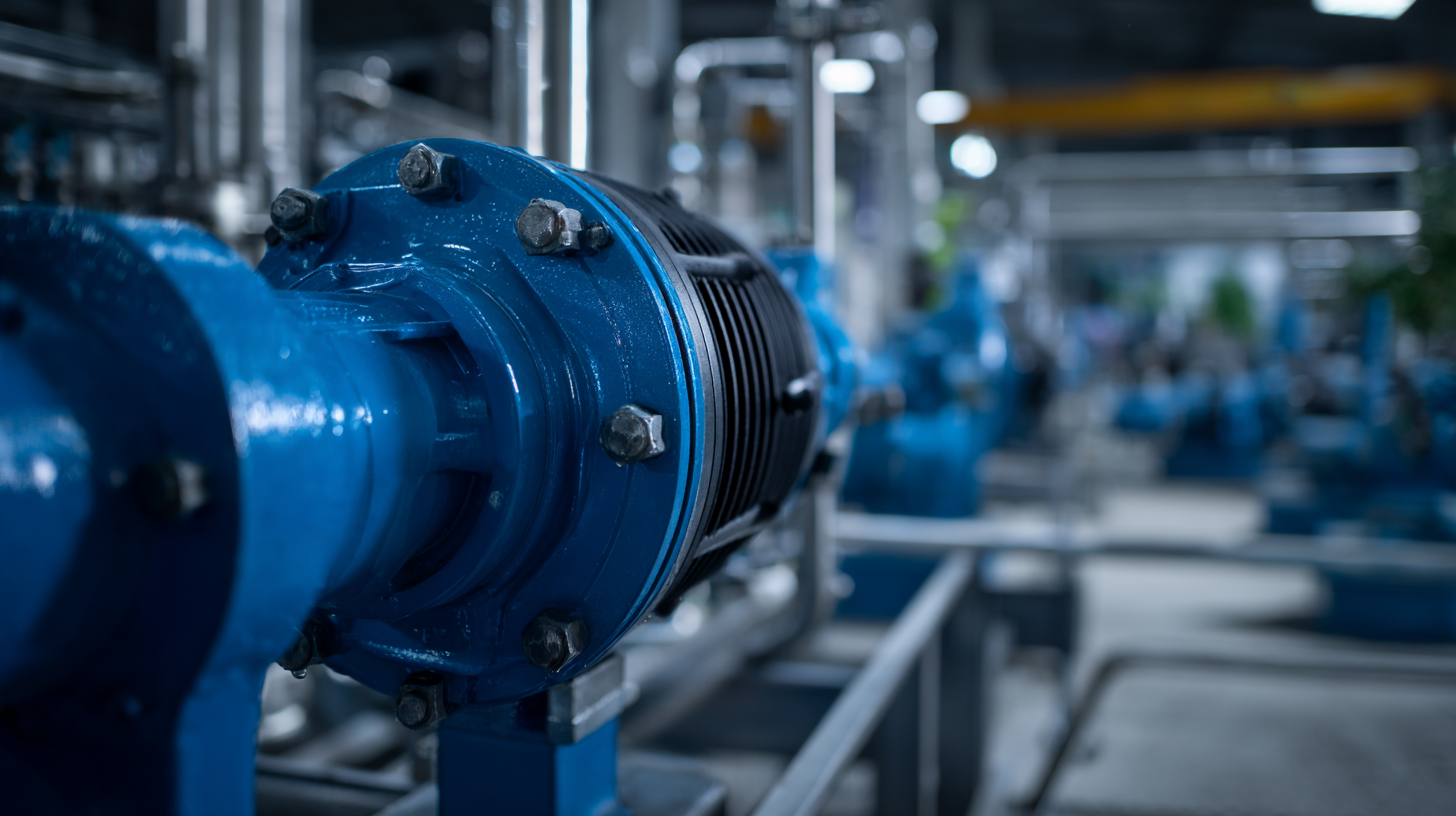
In terms of performance, canned pumps often demonstrate superior efficiency as they are engineered to maintain consistent flow rates and pressures. Their robust construction allows them to handle high-viscosity fluids more effectively than traditional systems. Furthermore, canned pumps typically operate more quietly and generate less vibration, creating a more stable operation environment. These benefits make them an increasingly preferred choice for industries where efficiency and reliability are paramount, such as pharmaceuticals, food processing, and chemical manufacturing, marking a significant shift in the landscape of fluid transfer technologies.
Related Posts
-
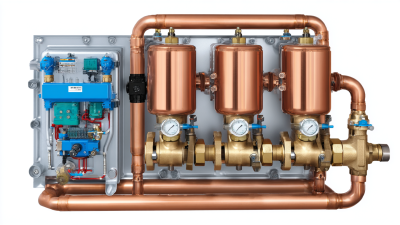
The Essential Guide to Choosing the Right Boiler Condensate Pump for Your Home
-
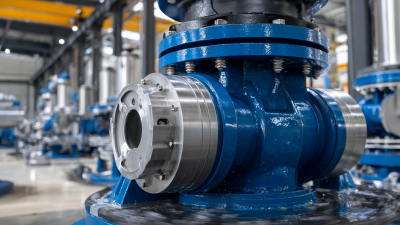
7 Essential Tips for Choosing the Right Vertical Centrifugal Pump for Your Needs
-
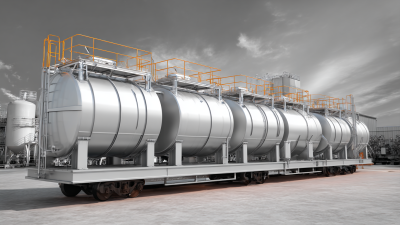
Understanding the Importance of Boiler Feed Tanks in Maximizing Efficiency and Reducing Costs
-

Maximizing Efficiency: The Essential Guide to Choosing the Right Liquid Propane Pump for Your Needs
-
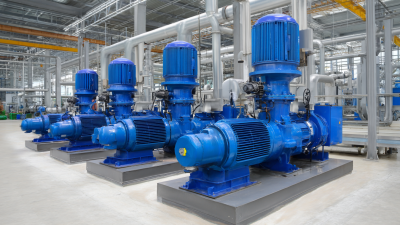
Maximizing Efficiency: The Ultimate Guide to Choosing the Right Vertical Centrifugal Pump for Your Needs
-
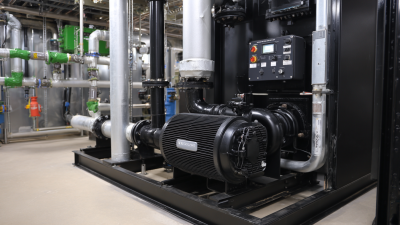
Maximizing Efficiency: The Role of Boiler Condensate Pumps in Energy Savings and System Performance
